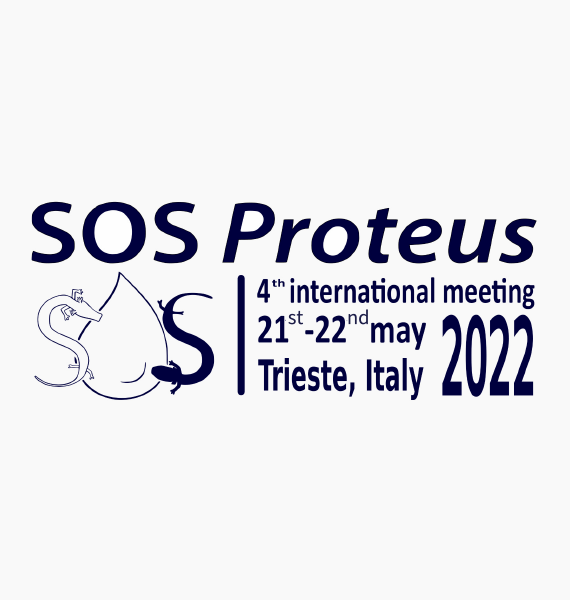SOS Proteus 2022
Home | Events | Researchers | SOS Proteus 2022

Trieste, Italy, 21–22 May 2022.
The 4th “SOS Proteus” international meeting is dedicated to the conservation of the olm and its habitat, faced with climate challenges, and the 260th anniversary of the first scientific description of Proteus anguinus by Joannes Antonius Scopoli.
Experts on olms, speleobiology, karstology, water quality, herpetology, conservation and public outreach are invited to give a short lecture or poster to present their experiences, methods and solutions, and/or to participate in the discussion within topics of the two-day meeting:
- Conservation status of olms and subterranean fauna, groundwater and karst
- New methods and conservation actions, best practice and public outreach
- Climate change challenges in groundwater ecosystems
- Negative anthropogenic pressures in karst landscape, emergency responses, action plans
- Veterinary challenges in conservation of Proteus
The meeting opens on 20 May 2022 and will continue for two more days, organised in partnership with the Speleovivarium Trieste, Speleological Society Adriatic, Natural History Museum Trieste, Municipality of Trieste, and Tular Cave Laboratory (LifeWatch Slovenia), under the patronage of the Italian Ministry for Ecological Transition, European Commission, Italian Speleological Society, Friuli Venezia Giulia Region, Regional Speleological Federation F.V.G., and Supported by CRTrieste Fundation.
Registration for SOS Proteus 2022 closed on 30 April 2022 but you can follow the Conference online:
21 May 2022 – watch the streaming
22 May 2022 round table ‘E-Science and open science to address challenges in conservation of Proteus‘ – watch the streaming
You can view the full programme below: